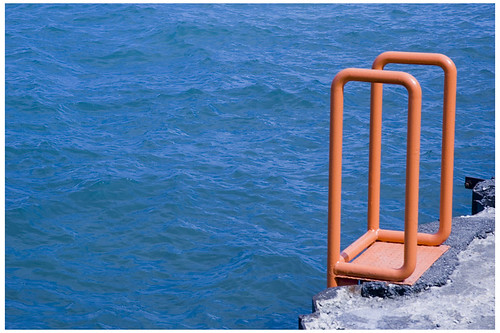For your daily anti-BP dose - apparently, BP thinks we want mercury to be part of our drinking water too. Gee, thanks. Is this fact going to be mentioned in the BP PR page, the one probably still linked through a google ad, found somewhere on this page?
Poor, poor, BP - record profits for years and years, and yet cannot find it in their budget to add anti-pollution devices to their plants.
BP dumps mercury in lake:
Refinery has been exempt -- and new permit gives it 5 more years
Although the federal government ordered states more than a decade ago to dramatically limit mercury discharges into the Great Lakes, the BP refinery in northwest Indiana will be allowed to continue pouring small amounts of the toxic metal into Lake Michigan for at least another five years.
A little-noticed exemption in BP's controversial new state water permit gives the oil company until 2012 to meet strict federal limits on mercury discharges. In documents, Indiana regulators predict the refinery won't be able to comply and will ask to continue polluting after that date.Federal records analyzed by the Tribune show BP puts 2 pounds of mercury into the lake every year from its sprawling plant 3 miles southeast of Chicago in Whiting, Ind. That amount is small compared with the mercury that falls into the water from air pollution, but mercury builds up in the environment and is so toxic that even tiny drops can threaten fish and people.
The BP refinery and a power plant in nearby Chesterton, Ind., are the only two industrial polluters that still dump mercury directly into Lake Michigan, federal records show. Under standards adopted by the U.S. Environmental Protection Agency in 1995, BP's annual discharge of the metal should be reduced to 8/100th of a pound.
Some industrial plants have spent the money to comply, but BP is complaining they cannot. Because, you know, BP is such a Green company, at least according to their own advertising.
Peter Swenson, chief of the water permits section at the EPA's regional office in Chicago, said some Great Lakes polluters have been granted exemptions to the mercury limits when they renew their permits. But others have been forced to comply immediately, he said, noting that emerging technology can remove the metal from waste water.A Tribune review of federal records shows that the waste water the BP refinery pumps into Lake Michigan includes more than a dozen toxic byproducts of oil refining, including benzene, toluene and suspended solids containing mercury, lead, nickel and vanadium.
The refinery is the top industrial source of lead, nickel and ammonia pollution directly released into the lake, according to the EPA's Toxics Release Inventory. It also is one of only two industrial polluters on the lake that dump acetonitrile, a chemical that metabolizes in the environment to cyanide.
If BP were to meet the federal mercury standard for the Great Lakes, it would take the refinery 25 years to put the same amount of the toxic metal into Lake Michigan that it does now in one year.
BP sought a new water permit to accommodate an expansion project that will enable the refinery to process more heavy Canadian crude oil, which is considered a more dependable source than supplies in the Middle East.
When Indiana regulators last month allowed the company to increase its pollution, they justified the move in part by noting the project will create 80 new jobs.
Oh, not those 80 jobs again. Still not quantified.
Why should anything BP says be taken seriously?
The “waste-water permit for BP's Whiting refinery fully complies with the federal Clean Water Act and assures the full protection of Lake Michigan,” Thomas Easterly, commissioner of the Indiana Department of Environmental Management, said in a prepared statement. “The permitted levels will not affect drinking water, recreation or aquatic life.”In documents filed with the permit, though, the agency noted that levels of mercury and lead detected in the refinery's waste water “show a reasonable potential” to violate water quality standards.
Mercury concerns environmental regulators because of its staying power in the environment. The metal accumulates as it moves up the food chain from bacteria to fish to people.
All of the states on the Great Lakes advise people to limit eating certain types of fish because of high levels of mercury contamination. Consuming even small amounts of mercury can damage the developing brain and nervous system of infants and young children.
Prodded by Congress, the EPA moved during the 1990s to virtually eliminate direct mercury discharges into the lakes. “The risks posed to human health and to the Great Lakes themselves by these toxic pollutants are simply too high to ignore,” then-EPA Administrator Carol Browner said in 1999.
Technorati Tags: BP, Lake_Michigan, mercury, pollution



